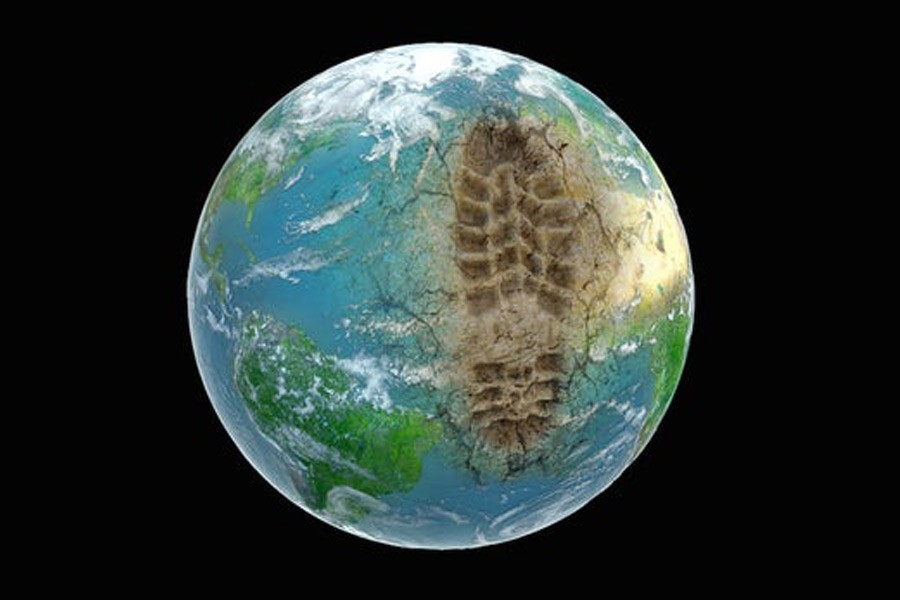Anthropocene is the period of time during which human activities have had an environmental impact on the Earth regarded as constituting a distinct geological age.
Climate change in Bangladesh is a pressing issue. According to National Geographic, Bangladesh is one the most vulnerable nations to the impacts of climate change.
El Niño is a climate cycle in the Pacific Ocean with a global impact on weather patterns. The cycle begins when warm water in the western tropical Pacific Ocean shifts eastward along the equator toward the coast of South America. El Nino is the reason for hotter summers with lower rainfall mostly seen recently in Bangladesh. El Nino effects on Bangladesh agriculture is strong. The situation is linked to water shortages, degradation of soil and disruption in planting of crops. When rainfall is low, less crops are produced. This causes a negative effect on food security. Droughts during El Nino can cause an adverse effect on biodiversity, wildlife and livelihoods. Reduced rainfall can cause a decrease in supply of water.
Bangladesh is a high risk country for emerging infectious diseases because of its high population density and poverty.
Cities like Dhaka everywhere, are not sustainable. The average city-dweller consumes many more resources, and emits far more greenhouse gas, than their rural compatriots, anywhere in the world. If more people move into unsustainable cities, resource consumption will increase, meaning urbanisation could lead to near certain disaster, not just with global climate, but also with regards to air pollution and water.
Bangladesh is a high risk country for emerging infectious diseases because of its high population density and poverty. Emerging Infectious diseases like SARS and zika can threaten all people throughout the world. It should be taken into consideration whether the country is fully prepared to address outbreaks.
Global consumption of fish has doubled since 1973 according to WorldFish Centre, and the developing world has been responsible for nearly all of this growth. Countries with rapid population growth, rapid income growth, and urbanisation tend to have the greatest increases in consumption of animal products, including fish products, and the developing world has experienced all three trends with Bangladesh not falling behind.
The people in Bangladesh are wasting about 5.5 per cent of the total procured food, a study says. As Bangladesh is one of the most densely and highly populated countries in the world, there will be a problem of food scarcity if the problem of wastage is not addressed.
Bangladesh is gradually succeeding in forest conservation through continuous changes in related policies, laws and regulations. The country needs to put more focus in maintaining forests as this will help to address the greenhouse effect.
Bangladesh has made remarkable achievements in reducing the average number of children per woman of reproductive age (total fertility rate - TFR). This figure was above seven in the early 1970s, but, according to World Bank, it is now merely 2.2. Bangladesh currently has the lowest TFR in South Asia. As Bangladesh is a very populous country with an increasing young adult population, care should be taken for decreased childbirths for sustained survival in the Anthropocene Epoch.
Tasdidaa Shamsi is BEng (Hons) Biomedical Engineering, The University of Sheffield (UK), MPH, MBA(IBA)(DU), Doctor of Public Health Year 1 (The University of Malaya)


